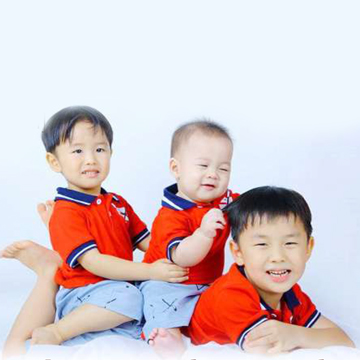Does Birth Order Affect Personality? – Do you think the order in which you were born into your family has a relationship with personality? A person’s personality is influenced by many factors – such as family, environmental, and genetic parenting.

One of Alfred Adler’s most significant contributions to psychology has been the relationship between birth order and personality development. Adler hypothesized that the position of the child in the family introduces specific problems that are handled in generally the same way. Such experiences associated with birth order result in a characteristic personality for each ordinal birth position.
There has been a plethora of research on birth order. Despite the highly empirical nature of most of the research, results are often restricted to isolated phenomena and incomplete explanations, as there is an absence of an underlying and comprehensive theory of birth order. There appears to be much documentation that the psychological ramifications of being raised in a certain ordinal position account for relationships between birth order and other phenomena, but little has been done toward understanding or explaining birth-order results. It appears that the birth order alone cannot explain the obtained results.
Is there an Effect of Birth Order on a Person’s Personality?
Much research has been done in the past to know the effect of the birth order on the personality. Alfred Adler’s theory is the first to study the relationship between birth order and personality. He strongly believes that the birth order among siblings can have a lasting and powerful effect on his personality. According to Adler, the birth order affects the way a person handles an issue and factors such as decision making, communication and connecting with others. Alfred Adler has an alsan that older children show such characteristics as awareness and friendliness.
Adler also describes five important characters in human personality. The five character traits are; openness, consciousness, extroversion, friendliness, and neurotic-ism. The impact of birth order on these traits is not very clear or vague. This theory is supported by Frank Sulloway. In his book Born to Rebel he has supported Adler’s view and has mentioned that younger siblings or younger children in families tend to be rebellious and have new ideas than the eldest.
Adler stated that, to understand a human being, the entire context of the family atmosphere needs to be understood and that an important issue within that rearing is the birth position in the family constellation. As the family group develops, different needs arise and the fulfillment of these needs is assigned to each child in order of birth. The style of coping is never the same for any two children as the situation changes. Adler pointed out that the needs or demands that influence a particular style of life correspond to the child’s perceived particular birth order.
What follows are the four birth-order categories with corresponding descriptions and research findings. It should be stressed that such descriptions indicate general trends to assist psychologists in making guesses relative to birth order and personality dynamics rather than only the labeling of individuals.
FIRST-BORN
First-born children occupy a unique position in the family. Parents have more time and attention to devote to their first child and are apt to be more cautious, indulgent, and protective. The first-born does not have to compete with older siblings and. for a while, has only adult models to copy and adult standards of conduct to emulate.
Research indicates that these factors do have an effect. First-born children are more likely to score at the upper extremes on intelligence tests, be highly motivated, achieve eminence, and have a high need for achievement. There are just as many first-born National Merit Scholarship winners as second- and third-borns combined. They are the most frequent in Who’s Who and are most likely to be found in leadership positions.
Such children tend to be very responsible and are production-minded in order to meet the adult standards. They are conservative, conscientious, and cooperative, reflecting the desire to maintain their privileged position with their parents after a rival appears.
MIDDLE CHILDREN
Second-born and/or middle children never experience the uniqueness of being the only one. They strive harder and will often compete to “take over.” The middle child may walk in the shadow of the older sibling whom he or she seeks to overtake. The middle child often feels less competent than the older child (not realizing that his or her inadequacies are a function of age) and may try to excel in other areas. For example, if the oldest child has an intellectual bent, the middle child may be athletically or artistically inclined.
Research indicates that middle children are sensitive to injustices, unfairness, and feelings of being wronged. They are likely to be found in aesthetic endeavors. Middle children, being very sociable and accepting, are good diplomats, work well as team members, relate well to older and younger people, and are able to maintain good relationships.
YOUNGEST CHILDREN
The youngest child also occupies a unique position in the family. He or she never has a pursuer and. being the “babv of the family.” will never be dethroned. The early socialization of last-borns more frequently involves indulgent, pampering treatment by other family members, resulting in a dependent-impulsive personality type.
The youngest child tends to be spoiled, as the older siblings join in with the parents to attend to all of his or her needs. Frequently, the result of this is a sense of security and a noncompetitive nature; he or she will strive to be always supported by others. The youngest child is frequently the most “powerful” in the family, resorting to the aggressive acting out or crying.
The youngest have a more developed lighter side to their personalities and are fun loving. Youngest children tend to be the most popular and affiliative and have the highest self-esteem of all birth positions. They are creative and humanitarian and have the highest appreciation of humor. When from a very large family, last-borns have the strongest need to achieve and are the best adjusted. However, they are most likely to experience school failure, to be alcoholic (a dependent personality), and to have the lowest 10. Nonetheless, the last-born position is the best-liked of all possible birth positions.
ONLY CHILDREN
Only children share with youngest children the fact that they are never dethroned or displaced; they arc never pursued. They also share the uniqueness of the first-born and do not have to compete for attention, having only adult behaviors and standards to emulate. Only children tend also to be spoiled by parents and may devote later years attempting to regain the favored position, having occupied stage center without having had to do anything for it. The result for the only child is that he or she will either remain dependent and helpless or will strive to meet adult competency.
Research indicates that only children have problems with close relationships, tending to be loners and lonely. Only tend to be selfish, with the lowest need for affiliation. They are most eager to please, yet maintain the most autonomy and are the least afraid of failure. Such children are most likely to go to college and are academically successful. Next to the first-born, the only child has the highest IQ and the highest need for achievement. In fact, the only child does achieve academically as a leader, and makes the best teacher or composer. Psychologically, only children have the most problems, being most likely to be referred for clinical help with psychiatric disorders and to be repeaters for such help.Investigation will continue, since the merits and potential of our present knowledge and hoped-for future research data play an important role in the understanding of human behavior.
Conclusion
In conclusion, birth order does indeed play a role in shaping an individual’s personality according to Adler’s Birth Order Theory. First-born children tend to be responsible and achievers, middle-born children often develop diplomatic skills, youngest children are often outgoing and attention-seeking, and only children are independent and mature. Understanding the influence of birth order can help us appreciate the unique characteristics and dynamics within families. However, it is crucial to remember that personality development is a complex interplay of various factors, and birth order should be considered alongside other influential elements.
